Obama-era consumer protections could be overruled by SCOTUS. Here’s what’s at stake.
The Consumer Financial Protection Bureau, the Obama-era consumer watchdog formed in response to the 2008 financial crisis, finds itself facing another existential threat.
The Supreme Court recently agreed to take up a ruling from the ultra-conservative Fifth Circuit Court of Appeals finding that the CFPB’s funding mechanism is unconstitutional.
The agency itself has long enjoyed public support: A voter poll conducted at the beginning of December 2022 found that 8 out of 10 people polled supported its mission.
Depending on the high court’s ruling, the CFPB could face major hurdles in its efforts to crack down on predatory lending and enforce other consumer protection laws. Other agencies could be threatened, too.
Voters overwhelmingly support the CFPB: 8 in 10 voters support consumer watchdog agency: poll
Here’s what experts say is at stake.
What does the CFPB do?
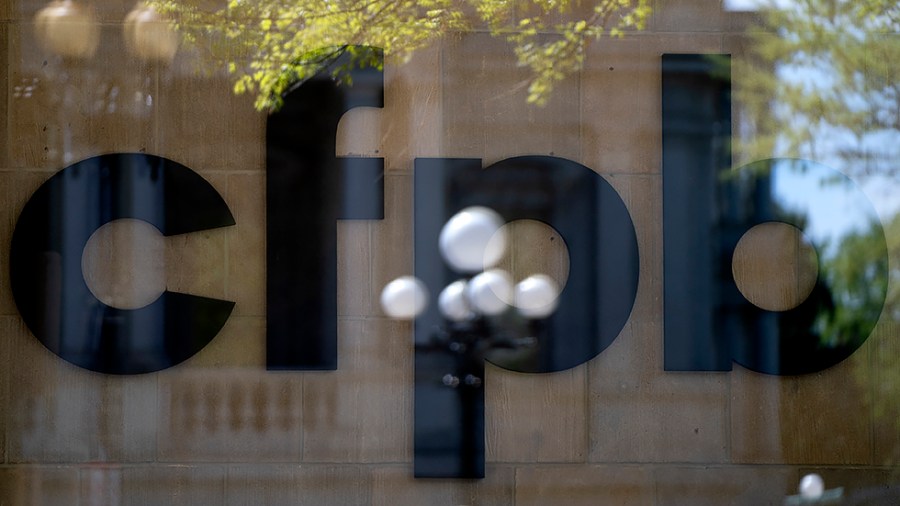
The Consumer Financial Protection Bureau is seen in Washington, D.C., on Wednesday, April 20, 2022. (Greg Nash)
The agency itself was created to help protect consumers from the types of business practices to led to the Great Recession and housing market meltdown in 2008.
With fewer resources, the CFPB could struggle to go after large institutions such as Wells Fargo, which in December agreed to pay $3.7 billion to settle a CFPB lawsuit accusing the bank of unlawfully repossessing vehicles, freezing accounts and hitting consumers with surprise overdraft fees when they had sufficient funds.
Rep. Patrick McHenry (R-N.C.), chairman of the House Financial Services Committee, who cheered the Fifth Circuit decision, has pledged to pass bills to bring the CFPB under the appropriations process and limit its rule-making authority, among other measures that would weaken the agency’s power.
Critics of the anti-CFPB push note that the Fifth Circuit lawsuit was brought by a trade association representing payday lenders, which the CFPB frequently sues for alleged predatory tactics.
They also point to industry donations.
Liberal advocacy group Accountable.US noted that McHenry was the top recipient of campaign contributions from commercial banks in the 2022 election cycle, receiving $1.6 million, and has brought in the third most campaign cash from payday lenders among sitting members of Congress.
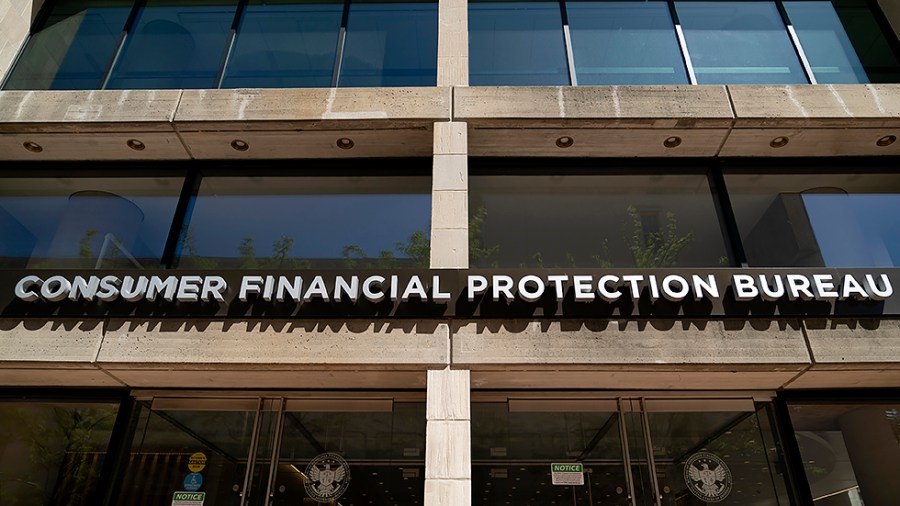
The Consumer Financial Protection Bureau is seen in Washington, D.C., on Wednesday, April 20, 2022.
Republicans would move to weaken the bureau

Sen. Ted Cruz (R-Texas) speaks during the Conservative Political Action Conference (CPAC) at the Gaylord National Resort and Convention Center in National Harbor, Md., on Thursday, March 2, 2023. (Greg Nash)
Republicans in Congress are preparing for a Supreme Court ruling that would require the CFPB to be funded through the appropriations process instead of the Federal Reserve.
With control of the House, Republicans would have considerable leverage in appropriations negotiations, giving them considerable control over CFPB’s future, experts say.
GOP lawmakers, along with allies in the financial services sector, have long lamented that Congress has little control or oversight over the independent agency.
They’ve also pushed back on the CFPB’s recent efforts to cap bank overdraft fees and credit card late fees, arguing that they’d shift costs to other consumers.
An ongoing fight: Supreme Court to review constitutionality of funding consumer protection bureau
“I think at the end of the day, the bureau probably survives, but with a smaller budget and maybe a bipartisan commission. But Republicans are gonna be in the drivers’ seat, so they’ll be able to say, ‘If Democrats want this bureau at all, you’re going to do it our way,’” said Ian Katz, managing director of strategic policy firm Capital Alpha Partners.
Several high-profile Republicans including Sen. Ted Cruz (R-Texas) have introduced bills to abolish the CFPB altogether.
“It’s very possible … that you’d have a situation where maybe the House of Representatives says, ‘Well, we’re not gonna fund it anymore, and it [goes] out of existence,” Sen. Chuck Grassley (R-Iowa) told The Hill.
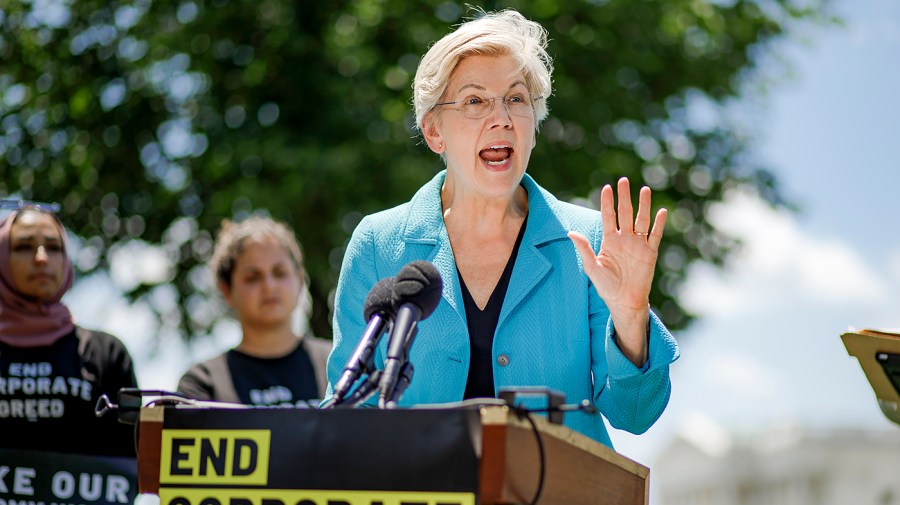
Sen. Elizabeth Warren (D-Mass.) addresses reporters during a press conference on Thursday, July 14, 2022 to discuss corporate greed.
Legal uncertainty could undermine the CFPB
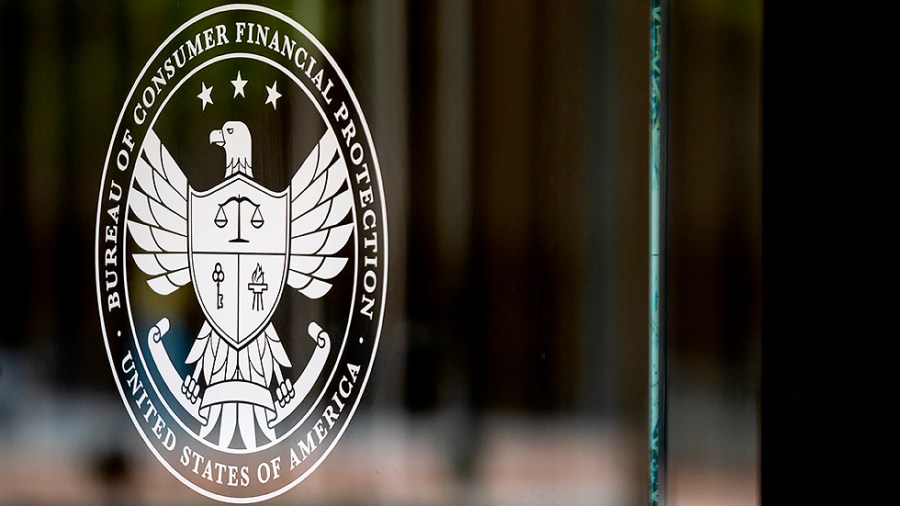
The Consumer Financial Protection Bureau is seen in Washington, D.C., on Wednesday, April 20, 2022. (Greg Nash)
The Supreme Court isn’t expected to rule on the CFPB case until 2024, leaving a legal cloud hanging over the CFPB that is prompting companies to challenge the bureau.
Last week, TransUnion asked a federal court to block a CFPB lawsuit against the company until the Supreme Court rules on the agency’s constitutionality.
Past agency actions have grabbed headlines: Wells Fargo settles CFPB allegations for $3.7B
The CFPB is suing TransUnion for allegedly tricking users into signing up for recurring payments that are difficult to cancel, violating a 2017 settlement with the watchdog. CFPB Director Rohit Chopra said in a statement that TransUnion is an “out-of-control repeat offender that believes it is above the law.”
The Fifth Circuit decision could also endanger proposed rules, like the CFPB’s recently unveiled rule to cap credit card late fees, which the agency said would reduce those fees by $9 billion annually.
Trade associations representing banks and other financial services firms are gearing up to challenge the rule in court.
“I think companies now are going to challenge the CFPB on everything that they don’t like, whether it’s rulemaking or a fine,” Katz said. “They see a weakened institution, or one that’s at least under a cloud of uncertainty.”
Existing rules could also be in jeopardy
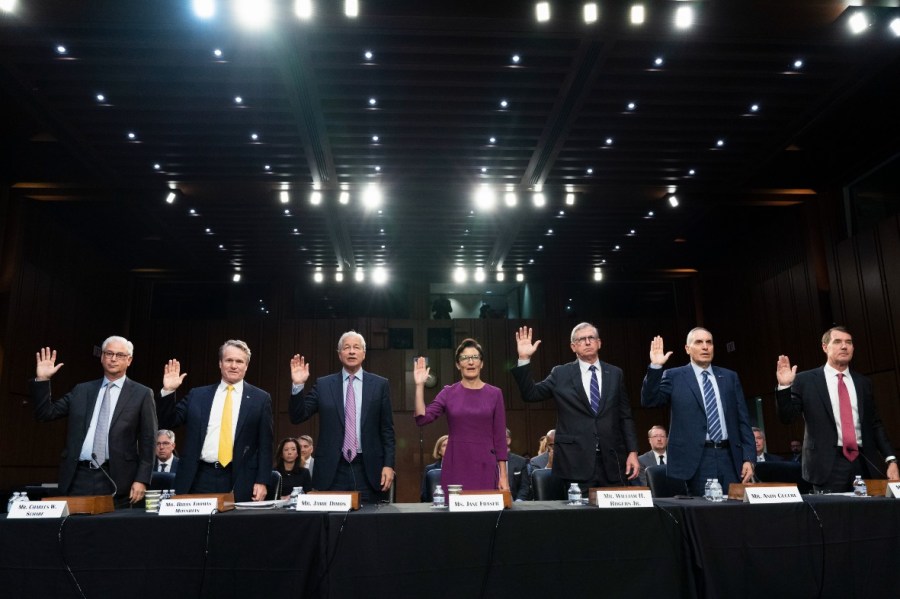
There are concerns that existing rules could be in trouble if CFPB’s funding mechanism is found unconstitutional. (AP Photo/Jacquelyn Martin)
If CFPB’s funding mechanism is found unconstitutional, there are concerns that more than just the payday lending rule at the center of the case could be at risk.
As part of the October decision by the Fifth Circuit, the court moved to vacate the 2017 Payday Lending Rule, saying then that “the funding employed by the Bureau to promulgate the [rule] was wholly drawn through the agency’s unconstitutional funding scheme.”
But in a legal sidebar detailing some of the potential legal ramifications the agency faces, the Congressional Research Service (CRS) argued that the reasoning “could reverberate well beyond that one regulation.”
“The reasoning could call into question the legality of every CFPB action funded by the Bureau Fund,” the CRS stated in the January post. “The CFPB uses the Bureau Fund to cover the costs of nearly all of its ‘vast rulemaking, enforcement, and adjudicatory’ activities.”
Mitria Wilson-Spotser, vice president and federal policy director at the Center for Responsible Lending, made a similar argument, while also raising concerns about the impact the risks posed to policies such as the Qualified Mortgage rule.
“The reason we have this housing appreciation, the reason why we have homeownership rates at the rate that we do in the United States today is because of that rule,” she told The Hill, while also saying she thinks “everything is up for play” if the Supreme Court ultimately rules against the CFPB’s funding structure in the case.
Other agencies with similar funding could be at risk
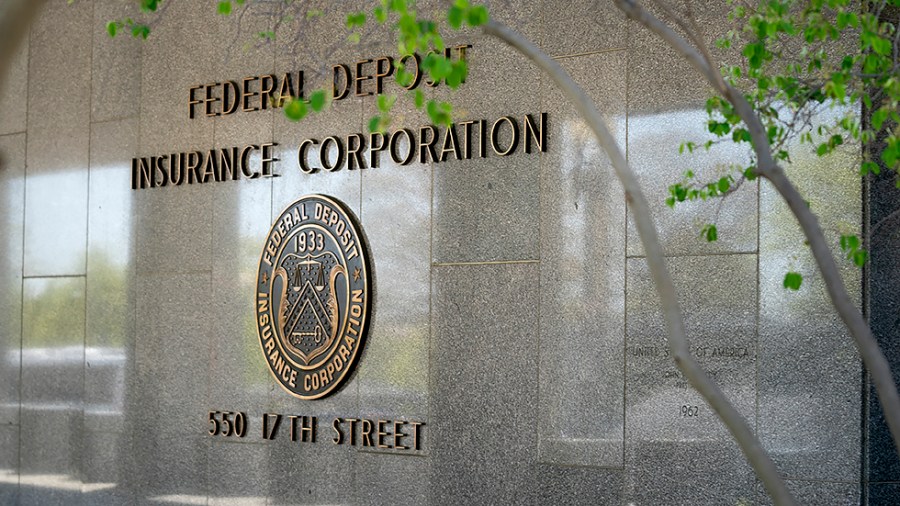
The Federal Deposit Insurance Corporation is seen in Washington, D.C., on Wednesday, April 20, 2022. (Greg Nash)
Proponents defending how the agency is funded have often cited how other banking regulators are financed outside the annual government appropriations process.
That includes the Federal Reserve, the Federal Deposit Insurance Corporation (FDIC) and the Office of the Comptroller of the Currency (OCC).
“There is no constitutional principle that says that Congress cannot have some agencies funded independently,” said Sen. Elizabeth Warren (D-Mass.), who helped set up the agency more than a decade ago.
“Congress has done that since the very first banking regulator was created in 1863, and every banking regulator since then has been funded the same way,” she told The Hill.
But, if the Supreme Court agrees with the judgment handed down by the federal appeals court, some have expressed concerns about what that could mean for other agencies and entitlement programs that are also funded independent of annual appropriations.
“We haven’t seen the same types of legal challenges to the Federal Reserve. We haven’t seen the same types of legal challenges to the OCC,” Wilson-Spotser said.
“We haven’t seen the same types of legal challenges to Social Security and Medicare,” she added. “But if the court agrees with this precedent, there is no doubt in my mind that we will see them in the future.”
Copyright 2023 Nexstar Media Inc. All rights reserved. This material may not be published, broadcast, rewritten, or redistributed. Regular the hill posts







